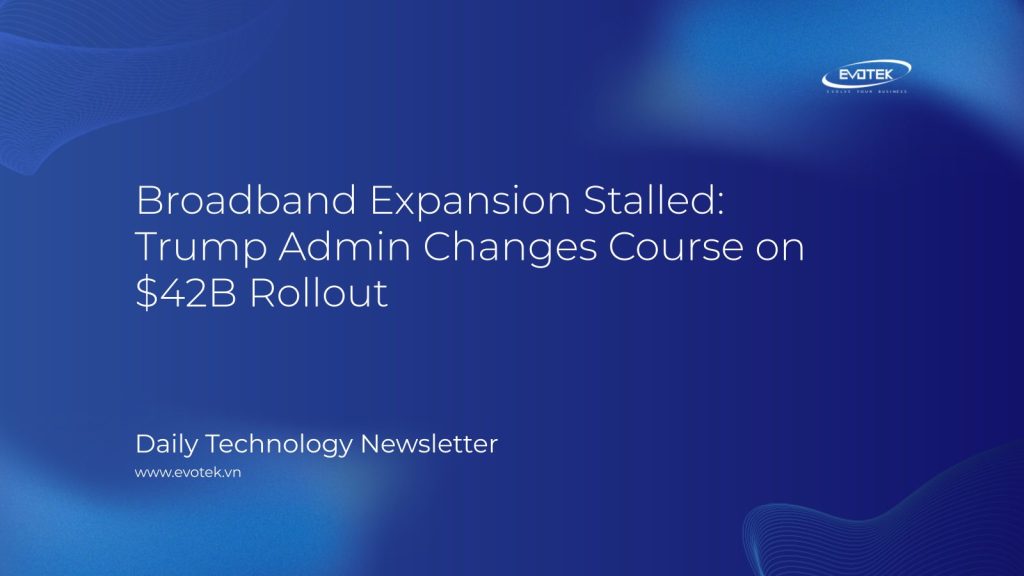A sudden policy shift by the Trump administration has injected uncertainty into the nation’s ambitious $42 billion broadband expansion, compelling states to revise their strategies for distributing crucial federal funding aimed at bridging the digital divide.
Secretary of Commerce Howard Lutnick’s recent unveiling of new rules effectively pauses the Broadband Equity, Access, and Deployment (BEAD) program, requiring states to re-evaluate how they allocate grants to Internet service providers. This move has left state officials scrambling to adapt, undoing months, if not years, of meticulous preparation.
“We were poised to award contracts this month, but [the Trump administration’s] program changes have unfortunately delayed that,” stated Andrew Butcher, president of the Maine Connectivity Authority (MCA). The MCA, established in 2021, spearheads Maine’s BEAD planning and other essential broadband initiatives.
The timing of this disruption is particularly concerning. “This is prime construction season,” Butcher emphasized. “Our plans were designed to allow projects to commence pre-construction and construction activities throughout the summer, extending into the fall and early winter.” The National Telecommunications and Information Administration (NTIA), overseeing BEAD, has now pushed the timeline back to late fall or early winter at the earliest.
The BEAD program, conceived under the Biden administration, prioritized fiber-optic infrastructure, widely regarded as the gold standard for high-speed, reliable internet. For three years, federal officials have meticulously developed rules and scrutinized plans from every state and territory. In Maine, this involved identifying homes and businesses lacking adequate service and soliciting bids from providers. This work now faces significant revisions.
The Trump administration’s impact extends beyond BEAD. President Trump recently eliminated a separate $2.7 billion grant program, established by the Digital Equity Act of 2021. This cut deprives Maine of an anticipated $35 million earmarked for digital skills training, STEM education, and telehealth access initiatives.
A central point of contention revolves around the Biden administration’s preference for fiber networks. Lutnick and other Republicans advocate for fixed wireless and satellite providers, such as Starlink, to have equal access to grant funding. The NTIA’s revised rules mandate states to conduct an additional “Benefit of the Bargain Round” in their selection process, aiming to provide non-fiber providers with a more competitive chance at securing grants.
As states like Maine urgently adjust their strategies, the future of America’s broadband expansion hangs precariously in the balance. Officials are now under immense pressure to condense years of planning into a matter of weeks, hoping that the vision of universal connectivity can withstand this latest wave of political turbulence.

 日本語
日本語 한국어
한국어 Tiếng Việt
Tiếng Việt 简体中文
简体中文